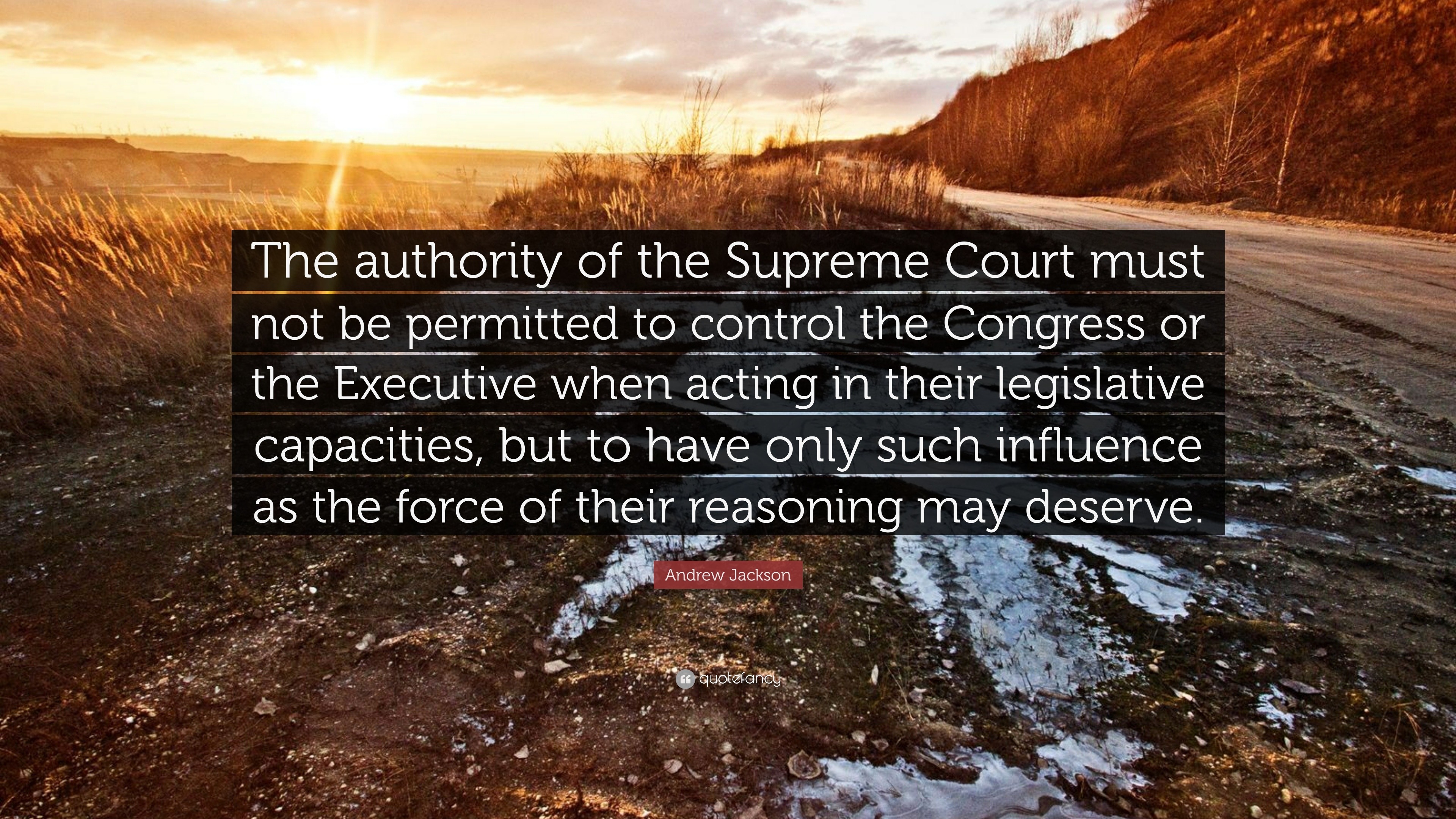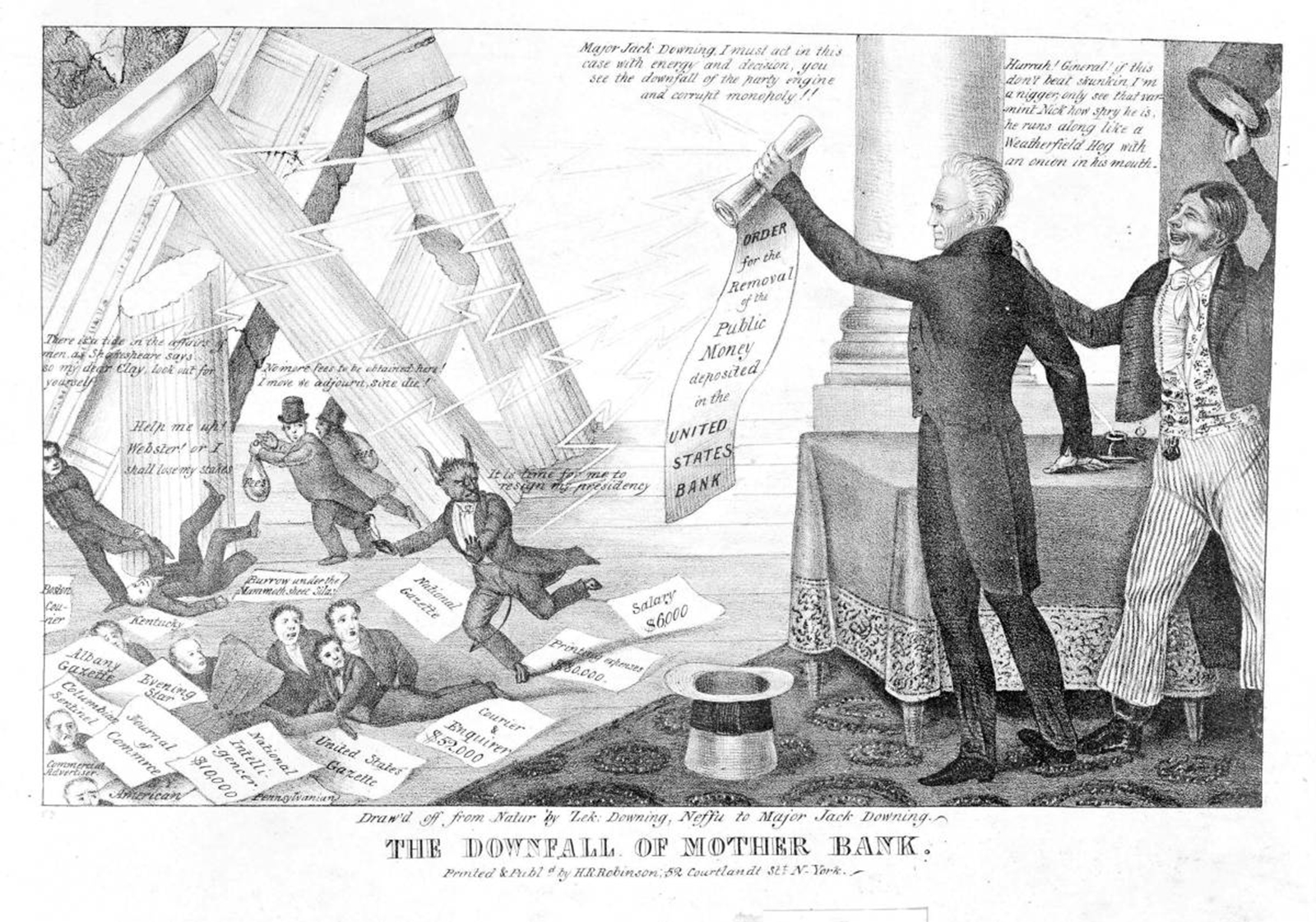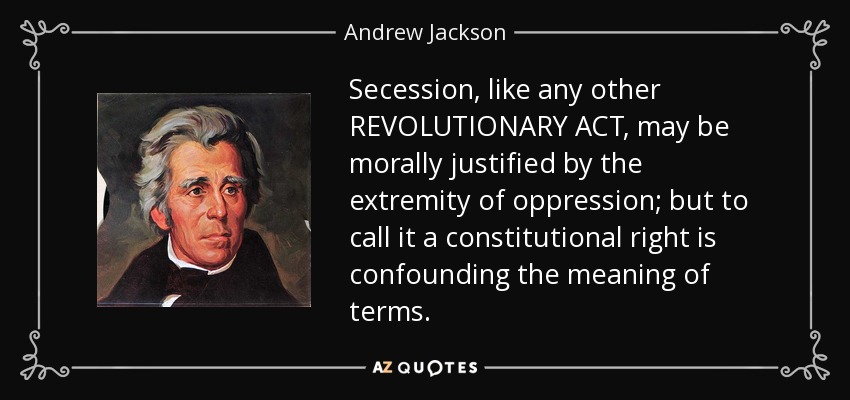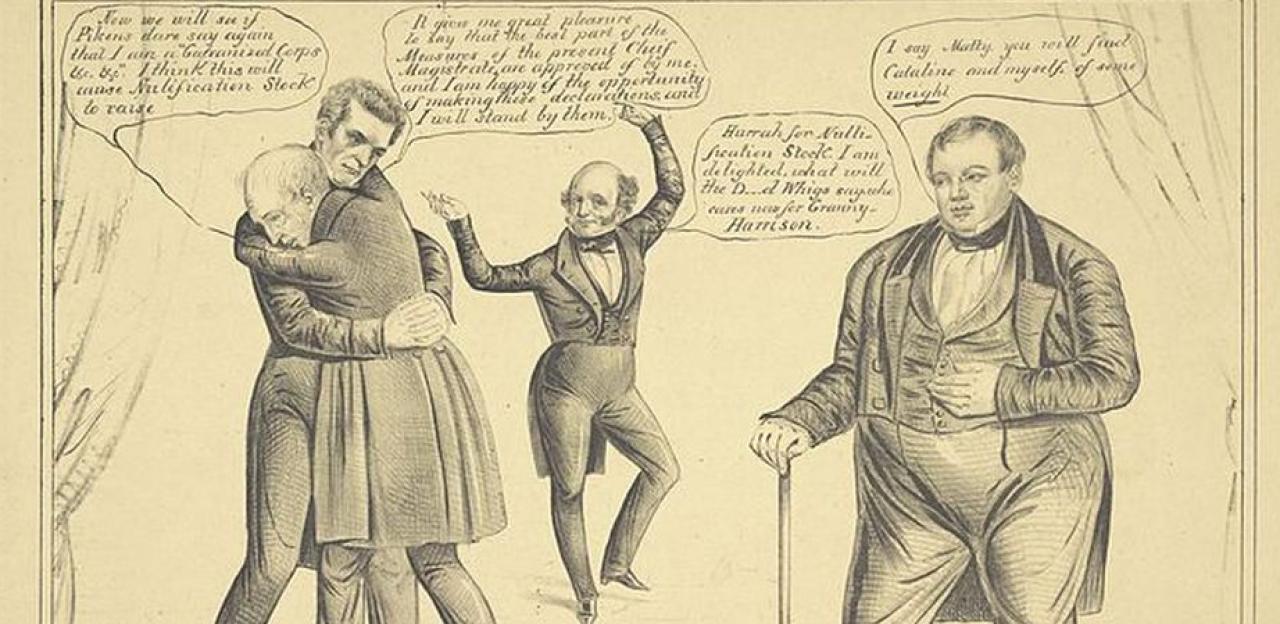Feb 9, 2023The Seventh American President, Andrew Jackson (1767-1845) (In Office 1829-1837) … Jackson threatened to use the military on South Carolina to enforce federal law, while South Carolina politicians ordered its state militia to be on guard. The tensions were high, as was the possibility of secession.
Harry Gordon Johnson Quote: “Most people are blinded by faith leaving them unable to see the
Issue. 4. War was at hand. Upstairs in his White House study over the long winter of 1832-33, President Andrew Jackson stood strong against a distant state that posed, he believed, an all too imminent threat to the Union. South Carolina was defying him, and he hated it: he believed to his core that the state was putting the nation in jeopardy.

Source Image: loc.gov
Download Image
On December 10, 1832, Jackson issued his “Proclamation to the People of South Carolina,” asserting the supremacy of the federal government and warning that “disunion by armed force is treason.”. In rebutting Calhoun’s states’ rights position, Jackson argued: Jackson’s proclamation evoked a defiant response from South Carolina in

Source Image: quotefancy.com
Download Image
How did the Nullification Crisis Lead to the Civil War, Secession Andrew Jackson is the only President, other than Lincoln, to have to deal with a serious threat of secession (as well as nullification), so his reaction, nearly 30 years prior to the Civil War is illuminating. We present here two documents: A private letter written by Jackson to Rev. A.J. Crawford; President Jackson’s Proclamation on Nullification.

Source Image: americanhistorycentral.com
Download Image
What State Threatened To Secede While Jackson Was In Office
Andrew Jackson is the only President, other than Lincoln, to have to deal with a serious threat of secession (as well as nullification), so his reaction, nearly 30 years prior to the Civil War is illuminating. We present here two documents: A private letter written by Jackson to Rev. A.J. Crawford; President Jackson’s Proclamation on Nullification. Nov 15, 2023It asserted the state’s right to nullify federal tariffs within its borders, specifically the Tariff of 1828 and the Tariff of 1832, which South Carolina believed hurt its economy. The defiance of federal authority brought South Carolina into direct conflict with President Andrew Jackson, who threatened to use military force.
Nullification Crisis, Summary, Facts, Significance, APUSH
Andrew Jackson was elected president in 1828, partly due to the South’s belief that he would pursue policies more in line with the interests of Southern planters and slaveholders. Indeed, Jackson had chosen John C. Calhoun, a native of South Carolina, as his vice president. 3 Many Southerners expected that Jackson would repeal or at least reduce the so-called Tariff of Abominations and 9. Democracy in America | THE AMERICAN YAWP

Source Image: americanyawp.com
Download Image
Andrew jackson | PPT Andrew Jackson was elected president in 1828, partly due to the South’s belief that he would pursue policies more in line with the interests of Southern planters and slaveholders. Indeed, Jackson had chosen John C. Calhoun, a native of South Carolina, as his vice president. 3 Many Southerners expected that Jackson would repeal or at least reduce the so-called Tariff of Abominations and

Source Image: slideshare.net
Download Image
Harry Gordon Johnson Quote: “Most people are blinded by faith leaving them unable to see the Feb 9, 2023The Seventh American President, Andrew Jackson (1767-1845) (In Office 1829-1837) … Jackson threatened to use the military on South Carolina to enforce federal law, while South Carolina politicians ordered its state militia to be on guard. The tensions were high, as was the possibility of secession.

Source Image: quotefancy.com
Download Image
How did the Nullification Crisis Lead to the Civil War, Secession On December 10, 1832, Jackson issued his “Proclamation to the People of South Carolina,” asserting the supremacy of the federal government and warning that “disunion by armed force is treason.”. In rebutting Calhoun’s states’ rights position, Jackson argued: Jackson’s proclamation evoked a defiant response from South Carolina in

Source Image: americanhistorycentral.com
Download Image
Andrew Jackson quote: Secession, like any other REVOLUTIONARY ACT, may be morally justified… The crisis over the Tariff of 1828 continued into the 1830s and highlighted one of the currents of democracy in the Age of Jackson: namely, that many southerners believed a democratic majority could be harmful to their interests. These southerners saw themselves as an embattled minority and claimed the right of states to nullify federal laws

Source Image: azquotes.com
Download Image
December 15: The Hartford Convention Discusses Secession – Today in Connecticut History Andrew Jackson is the only President, other than Lincoln, to have to deal with a serious threat of secession (as well as nullification), so his reaction, nearly 30 years prior to the Civil War is illuminating. We present here two documents: A private letter written by Jackson to Rev. A.J. Crawford; President Jackson’s Proclamation on Nullification.

Source Image: todayincthistory.com
Download Image
Nullification Crisis | American Battlefield Trust Nov 15, 2023It asserted the state’s right to nullify federal tariffs within its borders, specifically the Tariff of 1828 and the Tariff of 1832, which South Carolina believed hurt its economy. The defiance of federal authority brought South Carolina into direct conflict with President Andrew Jackson, who threatened to use military force.

Source Image: battlefields.org
Download Image
Andrew jackson | PPT
Nullification Crisis | American Battlefield Trust Issue. 4. War was at hand. Upstairs in his White House study over the long winter of 1832-33, President Andrew Jackson stood strong against a distant state that posed, he believed, an all too imminent threat to the Union. South Carolina was defying him, and he hated it: he believed to his core that the state was putting the nation in jeopardy.
How did the Nullification Crisis Lead to the Civil War, Secession December 15: The Hartford Convention Discusses Secession – Today in Connecticut History The crisis over the Tariff of 1828 continued into the 1830s and highlighted one of the currents of democracy in the Age of Jackson: namely, that many southerners believed a democratic majority could be harmful to their interests. These southerners saw themselves as an embattled minority and claimed the right of states to nullify federal laws